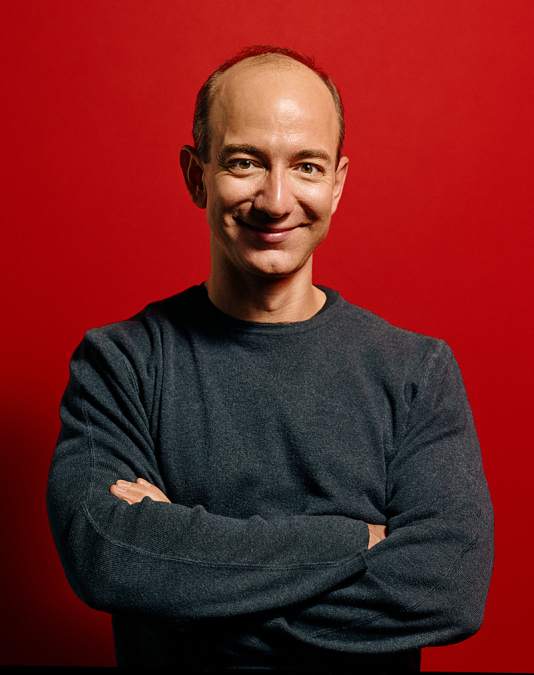“I won’t be leading The Washington Post day-to-day,” Jeff Bezos wrote in a letter this week to staffers at the newspaper he is buying. “I am happily living in ‘the other Washington’ where I have a day job that I love.” But the Amazon CEO’s $250 million purchase of the 136-year-old daily is also a indication of how the geographically distant Washingtons have developed a kind of oddly symbiotic closeness.
Aside from the novelty of a Seattleite about to close a deal for the legendary beacon of the nation’s capital, it’s a Seattle business executive, Sally Jewell of REI, who is President Obama’s new Secretary of the Interior. Former King County exec Gary Locke – whose wife just moved back to Seattle – is Obama’s all-important ambassador to China. World leaders enroute to the White House often make pit stops in Medina to sit at the foot of Bill Gates.
And did we mention the President’s mother was from Mercer Island?
There has always been something a bit comical about comparing the two Washingtons politically, especially now with Bezos, 49, taking a seat amid the D.C. ruling class, adding a Seattle techie’s voice to the dominate political chorus and telling the unreal Washington what to think.
He’s no innocent, and as a media baron about to gain a capitol grip, he’s sure to seek political favors for his businesses.
But he also hails from our peculiar strain of dressed-down billionaire royalty, who tend to do strange, anti-Washington D.C. things like invest their money in ways that, while making them rich and happy, aren’t blatantly partisan and can even benefit the public good. Gates and Paul Allen do it. Howard Schultz used to.
In this case, with his beaming enthusiasm for innovation, Bezos seems intent on creating the American newspaper of tomorrow – The Washington Kindle, perhaps, or The Daily Mirror, with which you can both read and shave.
“We will need to invent, which means we will need to experiment,” said Bezos as he sketched his futuristic strategy. “I’m excited and optimistic about the opportunity for invention.”
He’s clearly excited about having bought into the Post’s ink-stained past as well, and couldn’t help right off mentioning the paper’s most memorable journalist achievement, the 1970s Watergate revelations. They unfolded while he was in grade school, and were immortalized on film when he was a teen.
In his letter to Post staffers, he made reference to, of all things, Attorney General John Mitchell’s warning to then-Post publisher Kathryn Graham (who, incidentally, was sort of a reverse Jeff Bezos, having spent summers hereabout on Bainbridge Island and owned a local newspaper, the Everett Herald, bought last year by the Weekly’s owner, Sound Publishing).
Graham, Mitchell famously once told Carl Bernstein, is “gonna get her tit caught in a big fat wringer” if the paper printed a story about Mitchell’s involvement in Watergate payoffs.
“While I hope no one ever threatens to put one of my body parts through a wringer,” Bezos wrote to his new staffers this week, “if they do, thanks to Mrs. Graham’s example, I’ll be ready.” Honest.
Monday, the day Bezos’ Post purchase was announced, marked another memorable Watergate moment for the newspaper, with a Seattle footnote. It was the 39th anniversary of the release of the “smoking gun” tape, in which President Richard Nixon and chief of staff H.R. Haldeman are heard in 1972 discussing how to block an FBI investigation of the White House – they’d order the CIA to falsely claim that national security was involved. Three days after the tape was released on Aug. 5, 1974, Nixon resigned.
That cover-up was of course orchestrated with the help of John Ehrlichman, the jut-jawed former Seattle land-use attorney, aided by another Seattle lawyer Egil (Bud) Krogh – later imprisoned, disbarred, reinstated, and again practicing in Seattle. (When he showed up for an anniversary event put on by the Post last year at Watergate, Krogh observed that “It’s a lot easier to get into this building with valet parking.”)
Of all the pros and cons aired this week about the Post buy, Bezos was likely most encouraged to hear that he had the support of the paper’s Watergate reporting legends. Both Bernstein and Bob Woodward gave him a thumbs up as the Seattle guy who could rescue the paper after seven years of falling revenue.
“He’s the innovator,” said Woodward. And he seems, said Bernstein, “exactly the kind of inventive and innovative choice needed to bring about a recommitment to great journalism.”
Considering that Bezos’ estimated net worth is $28 billion, his commitment to journalism is currently less than one percent. And, remember, he’s keeping his Seattle day job. We’ll just have to wait and see whether his devotion to newspapers requires the sacrifice of body parts.








